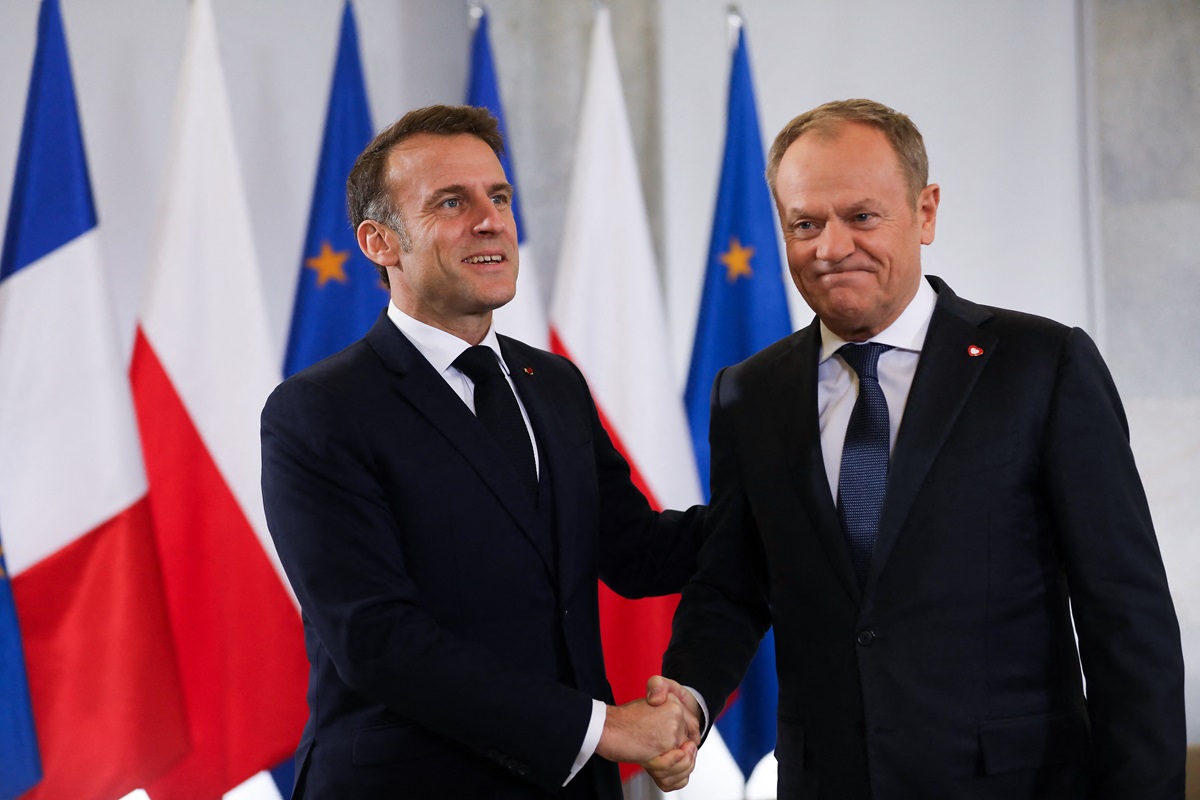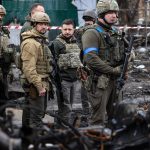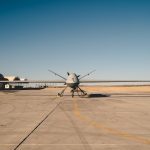Polish Prime Minister Donald Tusk has revealed that he held discussions with French President Emmanuel Macron regarding the potential stationing of foreign troops in Ukraine contingent on a ceasefire agreement. However, Tusk clarified that Poland is not currently planning to undertake any such actions.
During their meeting, Macron emphasized the necessity of finding a resolution to Russia’s ongoing war in Ukraine, which has persisted for almost three years. He highlighted that both Ukraine’s sovereignty and European security are critical in seeking a path forward. Macron’s visit to Warsaw followed his recent meeting in Paris with Ukrainian President Volodymyr Zelensky and U.S. President-elect Donald Trump, who has pledged to prioritize solving the crisis upon his inauguration next month.
In light of the escalating tensions and the urgent need for military support, the U.S. announced a new military aid package of $500 million for Ukraine, aiming to strengthen Kyiv in anticipation of any potential negotiations with Russia under Trump’s administration, who has signaled intentions to seek concessions for a ceasefire.
Tusk addressed the emerging speculation regarding peacekeeping forces by confirming his dialogue with Macron on the matter. He stated, “Any decision on Polish actions will be taken in Warsaw and only in Warsaw. For the moment, we are not planning any such actions.” Although Macron did not publicly endorse the idea of peacekeepers during his Warsaw visit, he previously suggested in February the possibility of Western troops being deployed in Ukraine.
Responding to questions about Macron’s proposal, Zelensky expressed openness, stating, “Frankly, we can think and work on Emmanuel (Macron)’s position.” He acknowledged the suggestion of having troops from other nations in Ukraine to guarantee security given Ukraine’s non-NATO status.
EU foreign policy chief Kaja Kallas also weighed in, stressing that peace in Ukraine is essential for any peacekeeping missions to be viable. Kallas remarked that meaningful dialogue can only occur if Russia halts its bombardment of Ukraine. She emphasized that individual European countries must make their own decisions regarding the deployment of troops.
German Defense Minister Boris Pistorius has similarly commented on the contemplation of foreign peacekeepers, indicating that discussions are ongoing but taking place in a confidential setting.
Trump, in his first international trip following his election victory, voiced strong critiques of U.S. foreign policy concerning the conflict. He labeled the decision to launch missiles into Russia as “foolish,” asserting that such actions exacerbate tensions with Moscow. In a recent interview, Trump stated his disagreement with sending American missiles into Russia and underscored that such measures provoke unnecessary backlash.
Despite varying views on military strategy, both Macron and Tusk reiterated the importance of involving Ukraine in discussions aimed at resolving the conflict. Macron argued that Ukrainian interests should drive negotiations concerning any concessions. “No one can speak for the Ukrainians in their name regarding concessions to make… It’s up to the Ukrainians to do so,” he stated, while also stressing that European security cannot be discussed without considering the needs and sovereignty of Ukraine.
Poland, a NATO member and a key ally of Ukraine, plays an instrumental role as a logistics hub for Western military support. With plans to assume the rotating presidency of the European Union next month, Polish leaders, including Tusk, have been in discussions with various officials regarding the future of Ukraine. Tusk has hinted at the possibility of initiating peace talks as early as this winter, indicating Poland’s active engagement in shaping the political landscape surrounding the conflict and potential negotiations.













